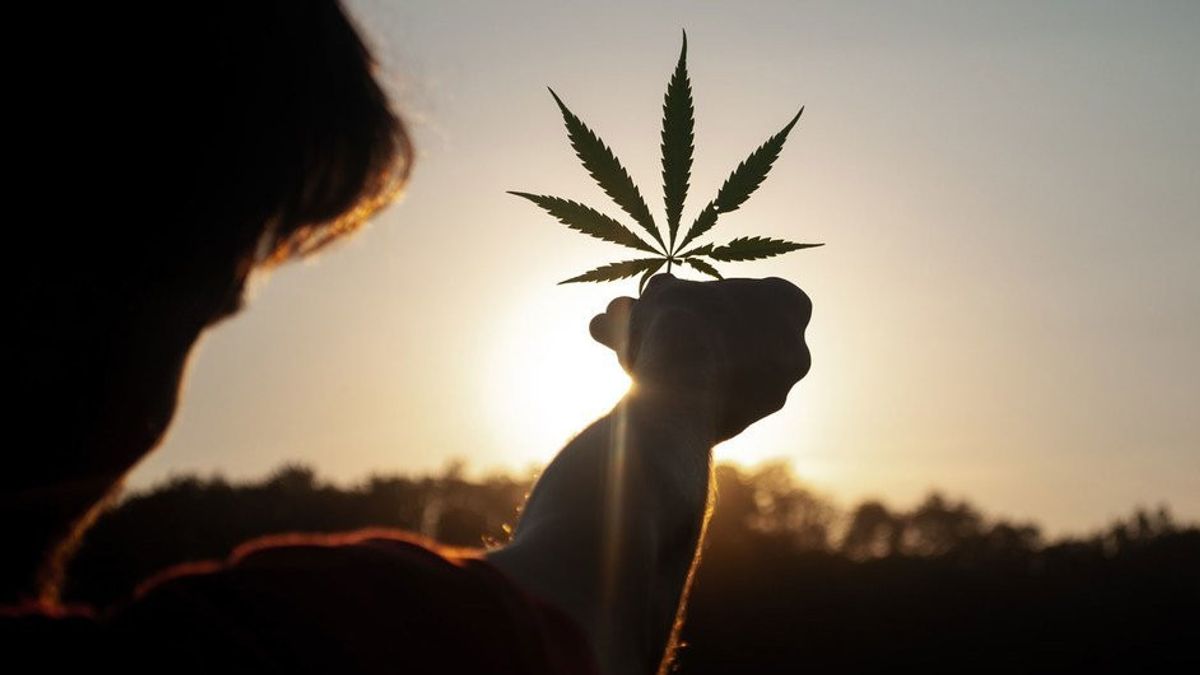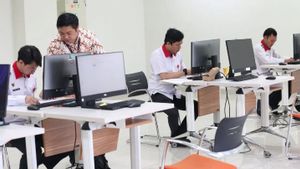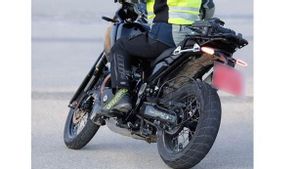JAKARTA – The Constitutional Court (MK) has rejected a judicial review of Law Number 35 of 2009 concerning Narcotics related to the use of medical marijuana for health services.
The Court reasoned that marijuana was classified as a class I Narcotics whose use was only for the purpose of developing science. The potential for dependence is also high.
There is no scientific study that confirms that marijuana can be a therapy or cure for a disease.
"There is no evidence of an assessment from experts, so the petitioner's wishes are difficult to be considered and justified by the court," said Judge Suhartoyo at the Court's decision or determination hearing at the Constitutional Court Building, Jakarta, Wednesday (20/7/2022).
Individual applicants who submitted applications include Dwi Pertiwi, Santi Warastuti, and Nafiah Muharyanti, each of whom has a child with cerebral palsy and requires treatment with Narcotics Category I.

The petitioners asked the Constitutional Court to revoke the explanation of Article 6 paragraph (1) letter a and Article 8 paragraph 1 of Law Number 35 of 2009 concerning Narcotics which prohibits the use of Narcotics Category I for health services.
With arguments, this provision contradicts Article 28H paragraph (1) of the 1945 Constitution which guarantees the right to health and Article 28C paragraph (1) concerning the right to benefit from the results of the development of science and technology.
Advocate for the Institute for Criminal Justice Reform, Erasmus, is surprised that legalizing marijuana in Indonesia is so complicated. In fact, many countries have made this rule. The application is only for health services, not for other things. "The applicant is clear, mothers whose children have cerebral palsy," Erasmus said to VOI via Zoom, Wednesday (20/7).
If it is considered that there has been no scientific study, Erasmus thinks it is wrong. The petitioner's power team has also explained the development of the United Nations which has changed the narcotics classification system by strengthening the position of using Category I narcotics, namely marijuana for medical purposes.
The UN Has Changed PolicyOn December 2, 2020, the UN Commission on Narcotics, namely the UN Commission on Narcotic Drugs (CND) by voting has approved the WHO recommendation to remove cannabis and cannabis resin (cannabis and its sap) from Group IV of the Single Convention on Narcotics 1961.
As a result, marijuana is no longer the same as other Type I narcotics which have the highest risk of causing death. On the contrary, it actually strengthens international recognition of the health benefits of the cannabis plant as evidenced by the results of research and medical cannabis treatment practices in various countries, both in the form of therapy, treatment of epilepsy symptoms, and others.
"We have conveyed it in court, until we present a doctor for consideration," said Erasmus.
The government should have referred to the research results.
“IKN only uses consultants from abroad. Can a research period like this not take references from abroad?” he said.

If there are concerns about marijuana abuse, that's a different matter. Everything can be abused.
“Just aibon glue can be abused. It should be used for glue, instead it is made for other things,” he said.
The paradigm is not because there is abuse and then it is completely prohibited. The point, added the LBH Masyarakat advocate, Maruf, is the fair use of groups. “As long as Narcotics can be used for health services and scientific development, why is the access closed? There should be no class discrimination.”

After all, today many products that are more dangerous than marijuana can become drugs. Morphine, for example, has long been used for health services.
“Morphine alone can be used for medical, why can't marijuana? So, we think that the Constitutional Court's consideration is not sufficient to answer the questions we posed," said Maruf, Thursday (21/7).
Maruf assessed that the use of marijuana as a health service was urgent at this time. “Do children with cerebral palsy have to go to Australia just to get cannabis oil? If they can, if not? Does the government have a solution?”
Minister of Health, MUI, DPR to make a studySanti's action in the Car Free Day area of the Sudirman-Thamrin area on June 26, 2022 has stirred the hearts of the people. Santi with her husband and child who suffers from cerebral palsy walked from the HI roundabout to the Constitutional Court Building in the Gambir area while carrying a poster that read 'Please my son needs medical marijuana.'
Minister of Health Budi Gunadi Sadikin has given the green light to conduct research related to the use of marijuana for health services.
"Just like other plants, as long as they are used for medical research, we allow them," said Budi
The research process begins with research, if it is proven to be good for health, the process continues to the second stage, production.
"Research involves other parties, such as universities, doctors and others," he said.

The Indonesian Ulema Council is also ready to conduct a study on the use of marijuana for health services. This, said Chairman of the MUI Fatwa Division Asrorun Niam Sholeh, according to the suggestion of Vice President Ma'ruf Amin, who also serves as the MUI Advisory Council.
“We will follow up with a comprehensive study from a religious perspective. We will study it, in essence, MUI will contribute to providing a religious solution based on holistic consideration of the general benefit," Niam said as quoted by Tempo.co on June 30.
Likewise, the House of Representatives (DPR) is ready to follow up on Santi's aspirations. Taking steps to encourage a hearing with Commission III of the DPR which happens to be discussing the revision of the Narcotics Law.
The discussion on the revision of Law Number 35 of 2009 concerning Narcotics will begin during the session in August 2022. The DPR does not want to legalize marijuana through the revision of the Narcotics Law, but relaxes the use of marijuana for medical purposes.
"But once again remember there is no deflection. The DPR or Commission III are not currently in the business of legalizing marijuana, that's not it, let alone for recreation or for pleasure. We are just relaxing so that in future scientific developments there are drugs that contain a mixture of marijuana and that can treat diseases," said Member of Commission III of the Indonesian House of Representatives, Arsul Sani, to reporters, Wednesday (20/7).
Advocate for the Institute for Criminal Justice Reform, Erasmus, thanked all those who had supported him. He hoped that the process would go quickly.
"Especially for research, I hope the process won't take too long because it's not new, especially since we have many experts. We also have the BRIN, which is currently led by Mrs. Megawati, who is known to be close to the cilik. ordered BRIN to conduct research,” he said.
The thing to note is that if marijuana can be legalized for health care purposes, Erasmus hopes that the benefits can be affordable by all parties. "Otherwise, the struggle is not over," said Erasmus.
The English, Chinese, Japanese, Arabic, and French versions are automatically generated by the AI. So there may still be inaccuracies in translating, please always see Indonesian as our main language. (system supported by DigitalSiber.id)









